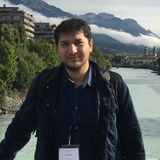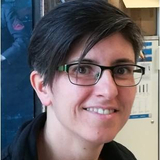Loss of LCMT1 and biased protein phosphatase 2A heterotrimerization drive prostate cancer progression and therapy resistance.
2023 Nature communications;14(1):5253.
PMID: 37644036
Rasool Reyaz Ur, O'Connor Caitlin M, Das Chandan Kanta, Alhusayan Mohammed, Verma Brijesh Kumar, Islam Sehbanul, Frohner Ingrid E, Deng Qu, Mitchell-Velasquez Erick, Sangodkar Jaya, Ahmed Aqila, Linauer Sarah, Mudrak Ingrid, Rainey Jessica, Zawacki Kaitlin P, Suhan Tahra K, Callahan Catherine G, Rebernick Ryan, Natesan Ramakrishnan, Siddiqui Javed, Sauter Guido, Thomas Dafydd, Wang Shaomeng, Taylor Derek J, Simon Ronald, Cieslik Marcin, Chinnaiyan Arul M, Busino Luca, Ogris Egon, Narla Goutham, Asangani Irfan A
Selective PP2A Enhancement through Biased Heterotrimer Stabilization.
2020 Cell;181(3):688, 701.e16, 688-701.e16.
PMID: 32315618
Leonard Daniel, Huang Wei, Izadmehr Sudeh, O'Connor Caitlin M, Wiredja Danica D, Wang Zhizhi, Zaware Nilesh, Chen Yinghua, Schlatzer Daniela M, Kiselar Janna, Vasireddi Nikhil, Schüchner Stefan, Perl Abbey L, Galsky Matthew D, Xu Wenqing, Brautigan David L, Ogris Egon, Taylor Derek J, Narla Goutham
PP2A Phospho-Tyr Antibodies Are Not Specific for this Modification but Are Sensitive to Other PP2A Modifications Including Leu Methylation.
2020 Cell reports;30(9):3171, 3182.e6, 3171-3182.e6.
PMID: 32130916
Frohner Ingrid E, Mudrak Ingrid, Schüchner Stefan, Anrather Dorothea, Hartl Markus, Sontag Jean-Marie, Sontag Estelle, Wadzinski Brian E, Preglej Teresa, Ellmeier Wilfried, Ogris Egon
Antibodies recognizing the C terminus of PP2A catalytic subunit are unsuitable for evaluating PP2A activity and holoenzyme composition.
2020 Science signaling;13(616)
PMID: 31992581
Frohner Ingrid E, Mudrak Ingrid, Kronlachner Stephanie, Schüchner Stefan, Ogris Egon
The Myc tag monoclonal antibody 9E10 displays highly variable epitope recognition dependent on neighboring sequence context.
2020 Science signaling;13(616)
PMID: 31992583
Schüchner Stefan, Behm Christian, Mudrak Ingrid, Ogris Egon












